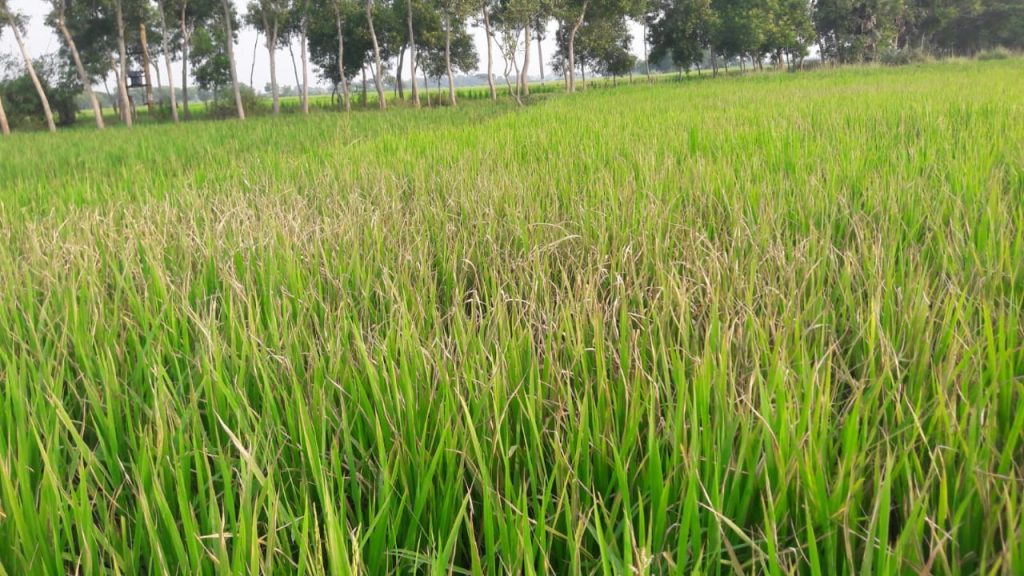Cuttack: Apprehending that paddy farmers in the coastal districts of Odisha would suffer heavy losses due to the rain-induced by cyclone Dana, agriculture scientists have suggested ways to reduce damage to the standing and harvested crops.
At least eight districts of the state – Ganjam, Puri, Jagatsinghpur, Jajpur, Kendrapara, Bhadrak, Balasore and Mayurbhanj – are likely to experience heavy rainfall and the standing paddy crops in those areas may be submerged.
In view of this, the National Rice Research Institute (NRRI) under the Indian Council of Agricultural Research has come out with an advisory in which the scientists have urged the paddy farmers to take precautionary measures to minimise crop loss.
NRRI Director Dr AK Nayak said the farmers should not panic over the situation and follow the advisory sincerely.
Among others, scientists have asked farmers to keep drainage channels open in non-mature paddy crops to drain the excess water out of fields to minimise the loss due to waterlogging.
“Harvested rice should also be properly stacked at safer places and covered with tarpaulin to avoid further damage due to prolonged rainfall,” the advisory said.
READ ALSO | Coastal Odisha receives heavy rain as severe cyclone ‘Dana’ approaches
It suggested that after the rain stops, the farmers should immediately dry the rice grains under the sun for one or two days to reduce the moisture content and then store the grains in good quality bags to retain their quality, texture, colour, aroma and taste for a longer period.
“In case of infestation of the stored grains, fumigation is required by using aluminium phosphide tablets in fairly air-tight containers covering the grain bags with thick tarpaulin without any gap or leakages for at least seven to ten days for a better result,” the advisory said.
Aluminium phosphide is used as a fumigant to control insects and rodents.
“Care must also be taken of swarming caterpillar and brown plant hoppers after the rain in the fields where the crops were planted late,” the advisory said.
PTI
